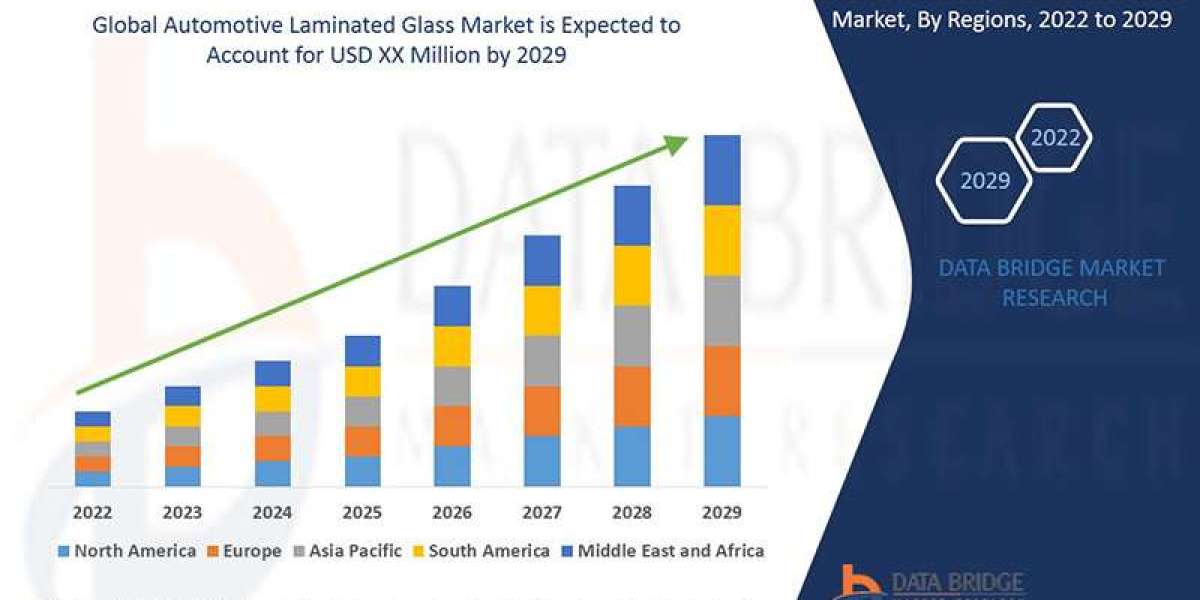Italy is undergoing a significant shift in how healthcare services are delivered, with digital transformation at the forefront. Spearheaded by the integration of artificial intelligence (AI) technologies, the country is investing in AI-powered patient portals to modernize its public and private healthcare systems. These advanced platforms aim to improve patient experience, streamline clinical workflows, and enhance diagnostic accuracy. As Italy embraces a new era in digital health, the promise of more accessible, personalized, and efficient care is rapidly becoming a reality.
A National Push for Digital Health Innovation
Italy's digital health journey is not new, but the COVID-19 pandemic acted as a powerful catalyst. In 2021, the Italian government allocated over €15 billion from the National Recovery and Resilience Plan (PNRR) to modernize the country’s healthcare infrastructure, including investments in telemedicine, digital health records, and AI-enabled tools.
The launch of AI-powered patient portals is a critical piece of this transformation. These platforms combine the functions of traditional electronic health record (EHR) systems with sophisticated AI algorithms, enabling real-time data analysis, personalized health insights, and predictive diagnostics.
What AI-Powered Portals Offer
Unlike standard health portals that simply store data, AI-powered patient portals in Italy are designed to interpret and act on it. Here are several key features of the new systems:
Personalized Health Recommendations: Based on the patient’s medical history, genetic information, and lifestyle data, AI tools provide tailored suggestions on diet, medication adherence, and disease prevention.
Virtual Assistants and Chatbots: Available 24/7, these AI-driven tools assist with appointment scheduling, symptom checks, and FAQs, reducing administrative burdens on hospitals.
Predictive Health Analytics: AI models analyze data trends to predict health risks such as cardiovascular disease or diabetes, enabling early intervention.
Secure Data Access and Sharing: Patients can access their health records from any device and share them securely with healthcare providers, specialists, or caregivers.
These enhancements are already being piloted in major regions such as Lombardy, Emilia-Romagna, and Lazio, with plans to expand nationwide.
Benefits for Patients and Providers
The implementation of AI in digital health portals significantly enhances healthcare delivery:
For Patients: Convenience and empowerment are major gains. Users have easy access to their medical records, appointment history, and test results, along with intelligent reminders and health tips. Chronic disease patients can benefit from continuous monitoring and personalized care pathways.
For Healthcare Providers: Doctors and clinicians can access patient information in real time, reducing redundant tests and improving diagnostic speed. AI tools also assist in identifying high-risk patients and optimizing resource allocation.
System-Wide Efficiency: With AI managing routine tasks and analyzing big data, healthcare systems can focus more on complex cases, improve treatment outcomes, and reduce operational costs.
Challenges and Considerations
Despite the promise, challenges remain. One major concern is data privacy and cybersecurity. Handling sensitive patient data using AI requires robust encryption and compliance with GDPR regulations. The government is working with cybersecurity experts to ensure these platforms are secure and trustworthy.
Another challenge is digital literacy. While younger patients are likely to adopt AI tools easily, elderly users may find them intimidating. To address this, regional health authorities are offering training programs and support hotlines to help all demographics navigate the new systems.
Finally, interoperability between different health IT systems continues to be an issue. Italy’s regionalized healthcare structure means different systems need to communicate with each other efficiently. The push toward a unified digital health framework is essential for success.
A Model for Europe?
As Italy rolls out AI-powered patient portals, it positions itself as a potential leader in digital health innovation within Europe. By demonstrating how national healthcare systems can integrate AI in patient care without compromising quality or equity, Italy offers a blueprint for others navigating similar transitions.
International observers, including the World Health Organization (WHO) and the European Commission, are closely watching the outcomes. If successful, Italy’s model could be replicated in other EU countries aiming to meet the EU Digital Health Strategy goals by 2030.
Conclusion
Italy’s digital healthcare transformation is gaining significant momentum with the integration of AI-powered patient portals. These innovative platforms are reshaping the patient experience, enhancing medical outcomes, and optimizing health system performance. With strong government backing, focus on cybersecurity, and efforts to improve digital literacy, Italy is on track to become a pioneer in AI-driven healthcare. The coming years will determine how well these tools can scale, adapt, and truly revolutionize the way healthcare is delivered in the 21st century.
FAQs on Italy’s AI-Powered Patient Portals
1. What is an AI-powered patient portal?
An AI-powered patient portal is an online healthcare platform that uses artificial intelligence to offer personalized medical insights, virtual assistance, predictive analytics, and secure access to health records. It goes beyond traditional portals by actively analyzing data to improve health outcomes.
2. Are these portals available to all citizens in Italy?
Currently, the rollout is regional, with pilot programs in areas like Lombardy and Lazio. The goal is to make AI-powered portals available nationwide under Italy's National Recovery and Resilience Plan.
3. Is my personal health data safe on these platforms?
Yes, the Italian government ensures compliance with strict GDPR data protection regulations. These portals use advanced encryption and cybersecurity protocols to safeguard sensitive information.
4. Can elderly patients use AI-powered portals easily?
To support older users, regional health services provide training sessions, support hotlines, and simplified user interfaces to help seniors navigate the portals effectively.
5. How does AI improve healthcare quality through these portals?
AI enhances healthcare by identifying health risks early, suggesting personalized treatments, streamlining administrative tasks, and enabling doctors to make more informed decisions with real-time data analysis.
Italy is undergoing a significant shift in how healthcare services are delivered, with digital transformation at the forefront. Spearheaded by the integration of artificial intelligence (AI) technologies, the country is investing in AI-powered patient portals to modernize its public and private healthcare systems. These advanced platforms aim to improve patient experience, streamline clinical workflows, and enhance diagnostic accuracy. As Italy embraces a new era in digital health, the promise of more accessible, personalized, and efficient care is rapidly becoming a reality.
A National Push for Digital Health Innovation
Italy's digital health journey is not new, but the COVID-19 pandemic acted as a powerful catalyst. In 2021, the Italian government allocated over €15 billion from the National Recovery and Resilience Plan (PNRR) to modernize the country’s healthcare infrastructure, including investments in telemedicine, digital health records, and AI-enabled tools.
The launch of AI-powered patient portals is a critical piece of this transformation. These platforms combine the functions of traditional electronic health record (EHR) systems with sophisticated AI algorithms, enabling real-time data analysis, personalized health insights, and predictive diagnostics.
What AI-Powered Portals Offer
Unlike standard health portals that simply store data, AI-powered patient portals in Italy are designed to interpret and act on it. Here are several key features of the new systems:
Personalized Health Recommendations: Based on the patient’s medical history, genetic information, and lifestyle data, AI tools provide tailored suggestions on diet, medication adherence, and disease prevention.
Virtual Assistants and Chatbots: Available 24/7, these AI-driven tools assist with appointment scheduling, symptom checks, and FAQs, reducing administrative burdens on hospitals.
Predictive Health Analytics: AI models analyze data trends to predict health risks such as cardiovascular disease or diabetes, enabling early intervention.
Secure Data Access and Sharing: Patients can access their health records from any device and share them securely with healthcare providers, specialists, or caregivers.
These enhancements are already being piloted in major regions such as Lombardy, Emilia-Romagna, and Lazio, with plans to expand nationwide.
Benefits for Patients and Providers
The implementation of AI in digital health portals significantly enhances healthcare delivery:
For Patients: Convenience and empowerment are major gains. Users have easy access to their medical records, appointment history, and test results, along with intelligent reminders and health tips. Chronic disease patients can benefit from continuous monitoring and personalized care pathways.
For Healthcare Providers: Doctors and clinicians can access patient information in real time, reducing redundant tests and improving diagnostic speed. AI tools also assist in identifying high-risk patients and optimizing resource allocation.
System-Wide Efficiency: With AI managing routine tasks and analyzing big data, healthcare systems can focus more on complex cases, improve treatment outcomes, and reduce operational costs.
Challenges and Considerations
Despite the promise, challenges remain. One major concern is data privacy and cybersecurity. Handling sensitive patient data using AI requires robust encryption and compliance with GDPR regulations. The government is working with cybersecurity experts to ensure these platforms are secure and trustworthy.
Another challenge is digital literacy. While younger patients are likely to adopt AI tools easily, elderly users may find them intimidating. To address this, regional health authorities are offering training programs and support hotlines to help all demographics navigate the new systems.
Finally, interoperability between different health IT systems continues to be an issue. Italy’s regionalized healthcare structure means different systems need to communicate with each other efficiently. The push toward a unified digital health framework is essential for success.
A Model for Europe?
As Italy rolls out AI-powered patient portals, it positions itself as a potential leader in digital health innovation within Europe. By demonstrating how national healthcare systems can integrate AI in patient care without compromising quality or equity, Italy offers a blueprint for others navigating similar transitions.
International observers, including the World Health Organization (WHO) and the European Commission, are closely watching the outcomes. If successful, Italy’s model could be replicated in other EU countries aiming to meet the EU Digital Health Strategy goals by 2030.
Conclusion
Italy’s digital healthcare transformation is gaining significant momentum with the integration of AI-powered patient portals. These innovative platforms are reshaping the patient experience, enhancing medical outcomes, and optimizing health system performance. With strong government backing, focus on cybersecurity, and efforts to improve digital literacy, Italy is on track to become a pioneer in AI-driven healthcare. The coming years will determine how well these tools can scale, adapt, and truly revolutionize the way healthcare is delivered in the 21st century.
FAQs on Italy’s AI-Powered Patient Portals
1. What is an AI-powered patient portal?
An AI-powered patient portal is an online healthcare platform that uses artificial intelligence to offer personalized medical insights, virtual assistance, predictive analytics, and secure access to health records. It goes beyond traditional portals by actively analyzing data to improve health outcomes.
2. Are these portals available to all citizens in Italy?
Currently, the rollout is regional, with pilot programs in areas like Lombardy and Lazio. The goal is to make AI-powered portals available nationwide under Italy's National Recovery and Resilience Plan.
3. Is my personal health data safe on these platforms?
Yes, the Italian government ensures compliance with strict GDPR data protection regulations. These portals use advanced encryption and cybersecurity protocols to safeguard sensitive information.
4. Can elderly patients use AI-powered portals easily?
To support older users, regional health services provide training sessions, support hotlines, and simplified user interfaces to help seniors navigate the portals effectively.
5. How does AI improve healthcare quality through these portals?
AI enhances healthcare by identifying health risks early, suggesting personalized treatments, streamlining administrative tasks, and enabling doctors to make more informed decisions with real-time data analysis.



